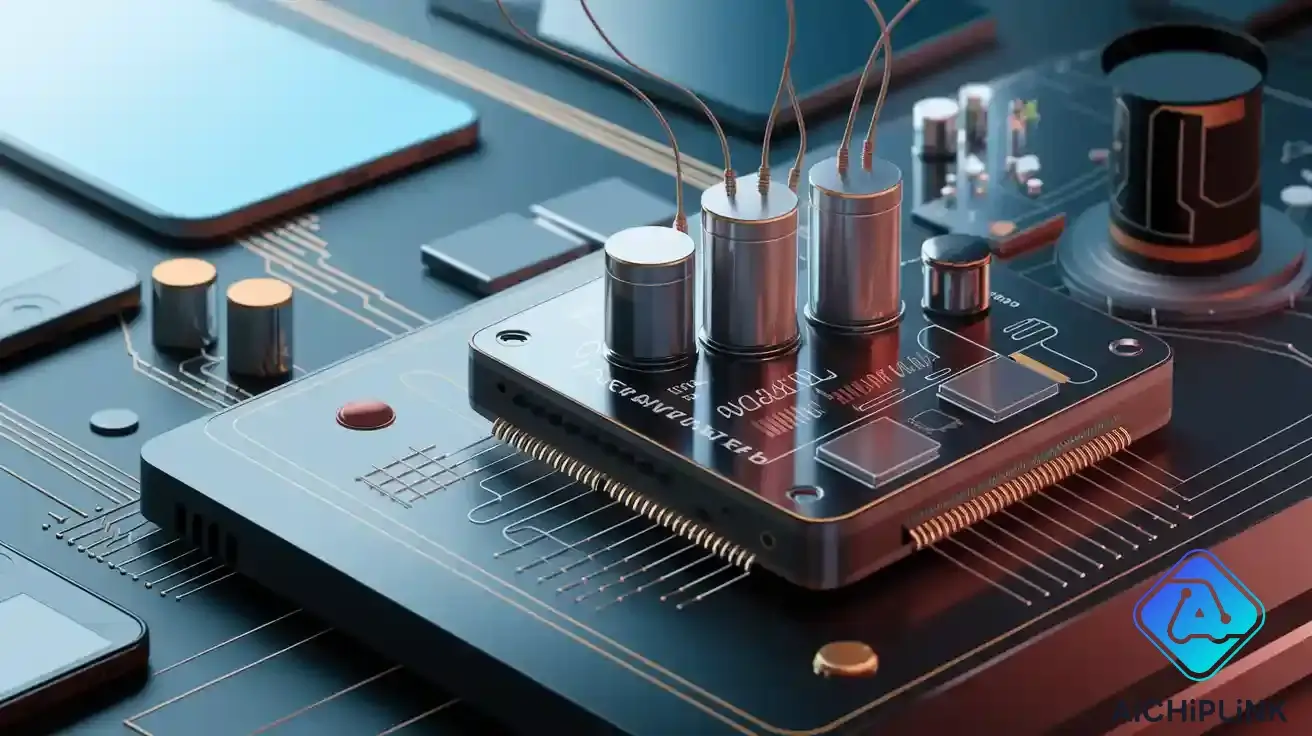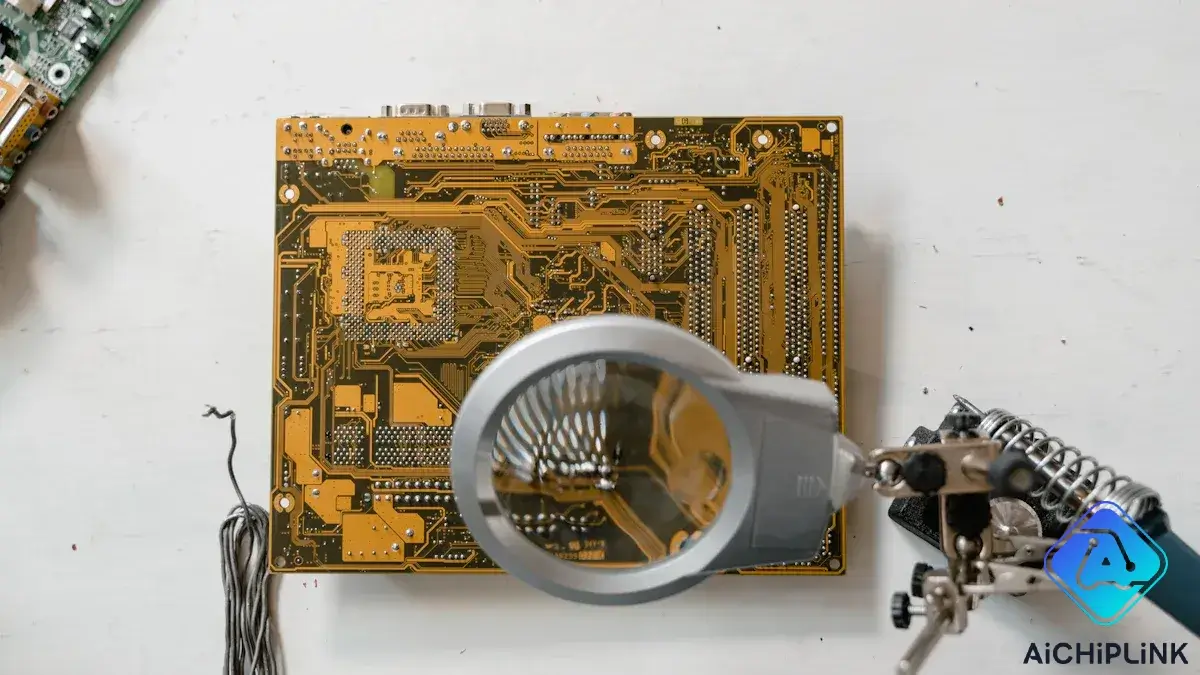
Alternating current filters let you control how electricity moves in devices. You use these filters to stop noise and cut down interference. They also keep electronics safe. Filters help your devices work better and last longer.
-
High-frequency AC makes batteries work for more time.
-
Low-frequency AC makes batteries lose power faster.
Picking the right frequency and signal quality helps your technology work well.
Key Takeaways
- Alternating current filters help devices work better by letting only certain frequencies through. They also cut down on noise and interference. Choosing the right filter type, like low-pass, high-pass, or band-pass, makes sure your devices work well and last longer. Cleaning and checking filters often stops them from getting too hot. This keeps electronics working smoothly. Filters in power supplies make power better and protect devices from electrical noise. They also help devices last longer. Learn about new filter technologies so your devices can use the best and newest features for good performance and reliability.
Alternating Current Filters Overview
What Are Alternating Current Filters
Alternating current filters help control which frequencies go through devices. These filters separate good signals from noise. Circuits use parts like inductors and capacitors. Inductors and capacitors act differently with high and low frequencies. At high frequencies, capacitors let signals pass easily. Inductors block signals at high frequencies. At low frequencies, capacitors block signals. Inductors let signals pass at low frequencies. This lets you pick which signals move through and which get stopped. Filters help devices work better and more smoothly.
Types of Alternating Current Filters
There are different types of filters in electronics. Each type does something special:
-
Low-pass filter: Lets signals with lower frequencies go through. Stops higher frequencies.
-
High-pass filter: Lets signals with higher frequencies go through. Stops lower frequencies.
-
Band-pass filter: Lets signals in a certain range go through. Stops signals outside that range.
-
Band-stop filter (notch filter): Stops signals in a certain range. Lets signals outside that range go through.
You find these filters in many devices. They shape sound in audio equipment. They clean signals in communication systems. They protect devices from interference.
Main Functions
Filters help pick the right frequency and get the signal you want. Here are some ways filters work in real life:
| Filter Type | Function | Application Example |
|---|---|---|
| Band-pass filter | Lets signals in a certain range go through | Radio tuned to one station |
| Band-stop filter | Blocks signals in a certain range | Removes power line noise in audio |
| Active filters | Give gain and keep output steady | Used in circuits needing steady output |
Filters help you get the signal you need from many sounds or waves. Studies show filters can lower noise and make signals better. Special computer programs can cut distortion in power systems. This helps you get a cleaner signal. Picking the right filters makes devices work better and last longer.
How Alternating Current Filters Work

Managing Noise and Interference
Electronic circuits can have noise and interference. These problems come from signal lines, power supplies, or voltage surges. Noise happens when signals mix in a device. Power supplies make high-frequency noise when switches turn on or off. Surges can break circuits and harm devices. Filters help fix these problems. Low-pass filters use inductors and capacitors to block high-frequency noise. Input capacitors soak up high-frequency energy before it spreads. Output smoothing circuits keep voltage steady and clean. Using these filters protects electronics from noise and interference. Devices get steady, clean power. This is important as people use more electronics every day.
Tip: The right filter can make power better. It lowers harmonic distortions and helps the power factor in energy systems.
Frequency Selection
You must pick which frequencies to let through or block. This is called frequency selection. Different filters work in different ways. A high-pass filter lets high-frequency signals go through. It blocks low-frequency signals. A low-pass filter does the opposite. Band-pass filters let only a certain range of frequencies through. They block the rest. This helps you focus on the signal you want and ignore noise.
| Filter Type | Mechanism Description | Cutoff Frequency Description |
|---|---|---|
| High-Pass Filter | Lets high-frequency signals go through. Blocks low-frequency signals. | Output voltage is 70.7% of input at cutoff frequency. Above this, output is higher. |
| Low-Pass Filter | Lets low-frequency signals go through. Blocks high-frequency signals. | Output voltage is 70.7% of input at cutoff frequency. Above this, output is lower. |
| Band-Pass Filter | Lets signals in a certain range go through. Blocks signals that are too low or too high. | N/A |
If you make a band-pass filter more selective, the output signal gets weaker. This is called attenuation. You need to balance selectivity and signal strength for the best results.
Signal Quality Improvement
Devices need to send and get clear signals. Alternating current filters help by removing unwanted parts of the current waveform. LC filters use inductors and capacitors. They let only certain frequency ranges pass. They block others and lower electromagnetic interference. Removing unwanted parts makes signals clearer and better.
Filters make devices work better. For example, a current sensor without EMI filtering can show a peak error of 1 V at 3 MHz. With internal EMI filtering, the error drops to about 3 mV at 40 MHz. It stays below 30 mV at higher frequencies. This means performance is over 35 times better. Both passive and active filter designs help you get this improvement. The right filter boosts circuit performance and protects electronics from voltage changes.
Note: Filters remove unwanted spectral parts. This makes signals better and devices more reliable.
Applications in Modern Technology
Power Supplies
Alternating current filters are in almost every power supply. These filters help keep your devices safe. They also help your devices work well. When you use a computer or charge your phone, filters inside remove unwanted signals. They keep the voltage steady. Active Harmonic Filters are important here. They lower harmonic distortions from non-linear loads. This makes the power your device gets better.
-
Active Harmonic Filters lower harmonic distortions in power systems.
-
Filters make power quality better and help devices work well.
-
Good power quality helps your devices last longer.
If you want your power supply to last, you need to watch how hot the filters get. Filters can stop working if they get too hot. You should also make sure capacitors have a voltage rating at least 10% higher than the highest voltage they will face. This helps stop damage and keeps your devices working longer.
| Aspect | Description |
|---|---|
| Harmonic Distortions | Active Harmonic Filters lower distortions and make power cleaner. |
| Power Quality | Better power quality means devices work better. |
| Component Longevity | Good filter care helps electronics last longer. |
Audio Equipment
You use circuit filters in audio equipment to make music and sound clearer. Chokes are special inductors. They block unwanted frequencies in the audio path. By removing high-frequency noise, these filters cut down on distortion. This makes the sound better. You get a richer listening experience because the filters keep the signal clean.
| Benefit | Description |
|---|---|
| Improving sound quality | Filters lower noise, so you hear clearer music and voices. |
| Enhance dynamic range | Filters help you enjoy deep bass and crisp highs. |
| Device stability | Good filters help your audio gear last longer. |
Communication Systems
Filters help you send and get clear messages in communication systems. You find these filters in radios, phones, and Wi-Fi routers. Filters pick out the right signal and block unwanted noise. This means your calls sound better. Your internet connection stays strong. Using alternating current filters in these systems gives you reliable performance and fewer dropped signals.
Tip: The right filters help your devices last longer and work better every day. ?
Importance of Alternating Current Filters
Device Protection
You use electronics every day. These devices can get hurt by electrical noise. Filters help protect your devices from this noise. Filters stop unwanted electromagnetic noise from getting in or out. This keeps your electronics safe and working well.
-
EMI filters cut down on bad signals and help devices fight electrical problems.
-
These filters are made to fit modern electronics.
-
You find filters in many places in big systems to keep things working.
-
Filters use passive parts to soak up or send away bad frequencies.
-
Electromagnetic waves can make currents that mess up your device.
-
Even small power problems can mess up signals.
Filters act like shields. They help your devices stay safe in busy power networks.
Performance Enhancement
If you want your electronics to last, you need to keep them safe. Filters help by keeping voltage steady and lowering noise. A passive filter like a capacitor resistor filter keeps voltage from changing too fast. This stops sudden changes that could hurt your device.
-
Filters lower noise so signals are cleaner.
-
Less noise means less stress on parts.
-
Better energy use means less wasted power and heat.
-
Less heat helps your devices last longer.
Using the right filters gives you better performance and longer life for your electronics. Clean current and steady voltage help a lot.
Safety and Reliability
Safety rules say you must use filters in many electronics. These rules help keep you and your devices safe. Here are some important standards:
| Standard | Description |
|---|---|
| UL 60939-3 | Rules for Passive Filter Units for Electromagnetic Interference Suppression, matches IEC 60939-3. |
| CSA C22.2 No. 8 | Canadian rules for EMI filters. |
| EN 60939-3 | European rules for appliance filters, with ENEC Mark for Europe. |
Following these rules helps keep your devices safe and working well. In power systems, filters make sure everything works right. You avoid shutdowns and keep your electronics running smoothly.
Tip: Using filters in your power network protects your devices and helps your whole system work better and last longer. ?
Selection and Trends
Choosing the Right Filter
You need to pick the best filter for your device. Start by looking at how well the filter blocks unwanted signals. Filtering performance matters most when you want a clean current waveform. You should check the filter’s maximum insertion loss and how it works at high frequencies. Next, think about where you will use the filter. Some places get very hot or cold. Some places shake or vibrate a lot. You need a filter that can handle these tough conditions. Ruggedness and ratings help you know if the filter will last. Size and form factor also play a big role. If you build something small, you need a filter that fits. Here are key things to consider:
-
Filtering performance for clean signals
-
Ruggedness and ratings for harsh environments
-
Size and form factor for tight spaces
Tip: Always match the filter to your device’s needs. This helps your energy systems work better and last longer.
Maintenance
You keep your filters working well by checking them often. Dust and dirt can build up and block airflow. Clean the filter parts to stop overheating. You should look for signs of wear, like cracks or loose wires. Replace old filters before they fail. Good maintenance keeps your device safe and helps it run smoothly. Make a simple checklist:
-
Inspect filters every few months.
-
Clean dust and debris.
-
Check for damage or loose parts.
-
Replace filters when needed.
A well-kept filter gives you steady performance and protects your electronics.
Innovations
You see new ideas in filter technology every year. Smart filters now use sensors to watch current waveform changes. These filters adjust themselves to block more noise. Some new filters use special materials that last longer and work better at high frequencies. Engineers design filters that fit smaller devices and use less power. You find these innovations in phones, cars, and smart homes. The future brings even smarter filters that help your devices stay safe and use energy wisely.
Note: Staying updated with new filter designs helps you get the best results from your electronics.
You notice alternating current filters are important in today’s technology. These tools help devices work better and stay safe. Filters also help electronics last longer. Learning about filters helps you pick the best ones for your devices. Keep asking questions and find new ways filters can change technology in the future.

Written by Jack Elliott from AIChipLink.
AIChipLink, one of the fastest-growing global independent electronic components distributors in the world, offers millions of products from thousands of manufacturers, and many of our in-stock parts is available to ship same day.
We mainly source and distribute integrated circuit (IC) products of brands such as Broadcom, Microchip, Texas Instruments, Infineon, NXP, Analog Devices, Qualcomm, Intel, etc., which are widely used in communication & network, telecom, industrial control, new energy and automotive electronics.
Empowered by AI, Linked to the Future. Get started on AIChipLink.com and submit your RFQ online today!
Frequently Asked Questions
What does an alternating current filter do in ac power systems?
An alternating current filter helps clean ac power. The filter blocks signals you do not want. It makes your ac circuit work better. Power moves more safely. Devices last longer when you use the right filter.
Why do you need filters in ac circuit designs?
Filters in ac circuits remove noise. They help you get clear signals. Filters protect your devices from getting hurt. You get better power and steady ac power.
How do filters help with power transmission?
Filters keep ac power clean as it moves. They stop voltage spikes. Filters lower interference. Your ac circuit stays safe. You get steady power for your devices. Tip: Clean ac power means fewer problems and better power for your devices.
Where do you find filters in signal processing applications?
You see filters in radios and audio systems. Filters help you pick the right signal. They block noise you do not want. You get better ac power and smoother power.
Can filters improve the safety of ac power?
Filters make ac power safer. They stop electrical noise. Filters protect your ac circuit from surges. You get steady power. Devices work better and last longer.











